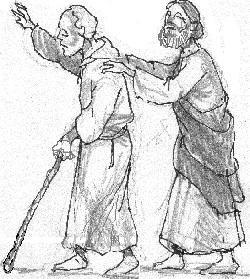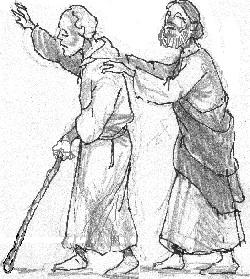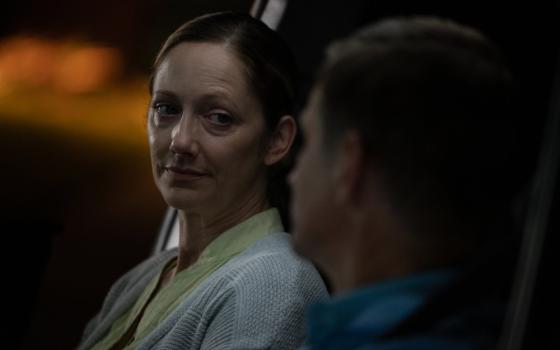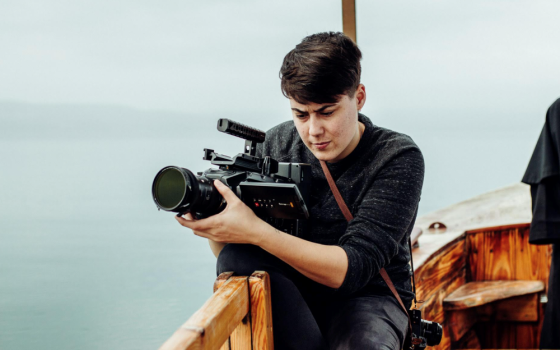

“Do you believe that I can do this?” (Matt 9:29).
Isaiah 29:17-24; Matthew 9:27-31
If you have ever attended a one-person play, you know the power of a single actor in a spotlight to focus a subject. But even a riveting solo performance cannot equal the complexity and energy that happens when another voice is added to make the play a dialogue. A soliloquy becomes a conversation, a presentation becomes a confrontation filled with uncertainty and surprise.
When Jesus meets two blind men on the road, their encounter with him is less interesting than the question of how two blind beggars would ever become companions, or how their overlapping disabilities were a benefit instead of a hindrance to either. They would be competing for alms, they could not guide each other, and together they would only accentuate the hopelessness of their situation.
Unless they were friends, for friendship requires only common ground, and they had this in their sightless poverty and suffering. What did they talk about? Did they have a plan? When they heard that Jesus of Nazareth was passing by, they joined their cries to attract his attention. They called him Messiah, “Son of David,” and they asked him for pity.
Jesus found that their faith was reinforced by their shared determination to see. They believed that he could restore their sight, and so it happened. Their eyes were opened. Perhaps they saw each other for the first time, and the face of Jesus as well. Despite Jesus’ order that they protect his identity, they spread word of their encounter with him all through the land.
Other famous duos in the Gospels who doubled the drama of Jesus’ love were the two Gerasene demoniacs, the two brothers in the Parable of the Prodigal Son, and the two disciples of John the Baptist who followed Jesus home and became his first disciples. Jesus would later send the 72 disciples out in pairs, knowing that companions make better evangelists.
Faith grows in community. Even when individuals falter, they are carried by the common affirmation, “We believe.” Communion, before it is bread and wine, is the willingness of many to be one in love at the table, transformed by the death of Jesus to become the risen body of Christ to the world.
Advent begins in darkness and points us toward the light. We go from candle to candle affirming Christmas, until the night sky explodes in stars and reverberates with the voices of angels, faith opening our eyes once again to see God made visible in the world, a child’s face looking back at us, asking only to be welcomed and loved. Do we believe that this can happen? If we do, “it will be done unto us according to our faith.”
Advertisement





